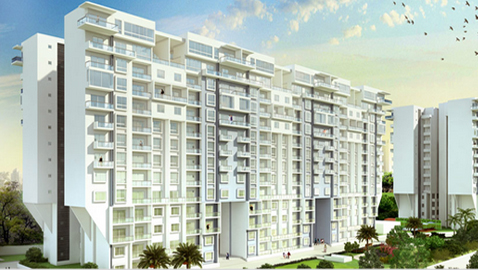

Managing Director
Shriram Properties
In many ways, the Indian real estate industry will be ending the year 2014 on a more solid note than when we began the year. Formation of the new government with a solid majority and with a clear vision and mission is a big boon to the industry. Encouragingly, India’s economic conditions are moving forward as policymakers are vigorous in strengthening the economic pillars of the country to augment the GDP growth. This has several positive effects, more so, for the property markets paving way for a still better 2015 for the Indian real estate.
Much headway has been made in several policy reforms during the second half of 2014. SEBI codified REITS norms and the government announced the tax pass through. FDI norms were relaxed for investments in real estates; real estate regulation bill is getting a final shape; so also land acquisition. ‘Housing for all’ is accorded its due importance. Smart City concept is gaining momentum.
Tax reforms and GST may happen at any time. With one single levy, GST will replace several indirect taxes — excise, sales tax, service tax, entry tax and other local levies. Thus, bringing in this critical tax reform measure, which is pending for more than five years, may bring in a sea-change. Erasing tax barriers between states and bringing in a single tax will enable a common national market for goods and delivery of services, especially to the real estate industry. Estimates say GST could add as much as two percentage points to GDP
With another three months to go, the 2014-15 real estate investment forecast for India indicates an improvement, largely due to government stimulus efforts.
Institutional investments and capital market transactions in the India realty market during the first nine months of the year hover at over $4 billion. Out of this, land and development stage transactions attracted the highest quantum of investments, nearly 60 per cent, from domestic as well as foreign entities. There had been significant investment in greenfield and brownfield development projects. The commercial office segment, too, attracted more than 20 per cent of this total investment.
Residential market and demand is stable for projects developed by developers with repute and proven record of performance. There is strong demand for prime office space and commercial real estate. In Q3 2014, alone nearly 7 million sq. ft of space was leased in six major Indian metro cities led by Bengaluru (Karnataka), Pune (Maharashtra), Chennai (Tamil Nadu) and Gurgaon (Haryana).
To sum up, the overall real state scenario for 2015 will be definitely very bright. At the same time, the future of the real estate industry as a whole will depend on faster implementation of projects, adherence to project timelines, delivery as per committed schedule, improved quality of construction and finishes, and coping up with ever-growing expectations and demands of the stakeholders which include clients and investors.











